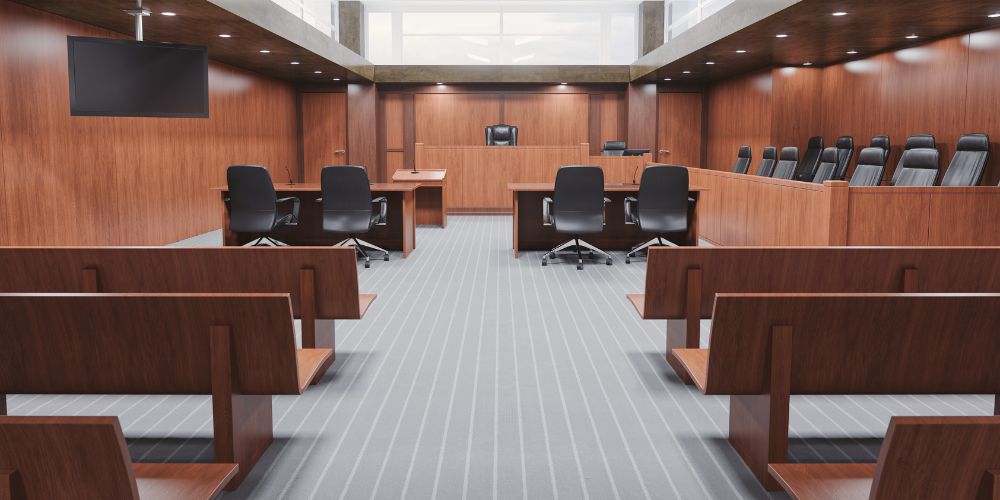There is often an overwhelming sense of confusion, fear, and worry when you or a loved one is charged with a crime, especially when it’s unclear who’s guilty. However, even without a conviction, criminal record charges have long-lasting damaging impacts on a person’s life, ranging from complications in employment, child custody, driving privileges, and renting and leasing, just to name a few.
In a state of panic, it’s too easy to blindly choose a lawyer from a phone book or TV commercial without considering the circumstances of your charges. However, choosing the right lawyer to advocate for you is crucial in maintaining one’s reputation and quality of life and should always be conducted with a thorough consultation first. Outlined below is a guideline on the traits that define a high-quality lawyer.
What Are The Fundamental Traits of a Criminal Defense Lawyer?
A skilled lawyer works with clients with a prompt, action-oriented mindset – they realize the circumstances of being charged with a crime are dire, and every interaction starting from the first phone call, is highly important. A skilled lawyer is also prepared for the endless red tape that court cases bring and know how to negotiate accordingly.
They also keep their client’s sense of dignity in mind with a tactful approach to obtaining essential information without causing shame or embarrassment. Finally, they will also be fully engaged while listening to your concerns and questions about your case while maintaining an open mind about handling it best.
Clients are under no obligation to discuss every detail that isn’t asked for; however, it’s still crucial to be honest from the start, as lawyers are legally forbidden from testifying falsely under oath. In addition, a reputable lawyer understands the value of privacy and is legal-savvy regarding information potentially harmful to a case. Often this need for confidentiality extends to interactions with a client’s family members who, despite their best intentions, demand information out of concern for their loved one.
How Knowledgeable Should a Criminal Defense Lawyer Be?
As criminal defense cases progress through various stages, it’s common for expected changes to occur and unforeseeable events during the legal process. A knowledgeable lawyer can navigate these complexities confidently and adequately reassure the client, especially in the face of severe felony charges. Ideally, a criminal defense lawyer will have at least ten years of experience in the field and be up to date on their legal knowledge.
They will also be skilled in recognizing the intricacies of a client’s case and can act diligently to defend a client’s innocence as the court case progresses. Clients may research online reviews about a criminal defense lawyer’s background if they wish to understand their areas of expertise and experience better.
The Significance of Staying Up-To-Date on Criminal Law
Quite frequently, when a governor or secondary legislative body signs a new bill, laws are subject to change even if they’ve been in place for decades or longer. These rulings can be drastic and come as a surprise, which requires criminal defense lawyers to be aware and informed of these updated laws.
Furthermore, this knowledge is crucial in representing their clients in court. A criminal defense lawyer can use a thorough strategy to address these points by analyzing the flaws in a prosecution’s arguments. Finally, the complexities of these updated laws/regulations will need to be presented to the jury during a court case.
Representing Your Case - The Ability To Negotiate
When it comes to finding the right criminal defense lawyer, first impressions are crucial. Clients should carefully assess how engaged a lawyer listens to their concerns and how they respond. A reputable criminal defense lawyer will ask intelligent questions and present themselves diplomatically yet sternly without giving rehearsed or pushy responses.
Through an experience-based understanding of the law and its nuances, knowledgeable lawyers will carry themselves with confidence and conviction in the face of confrontational people. They can gracefully present pressure-inducing statements such as “beyond a reasonable doubt” and refrain from the vagueness of “I think so” during a court hearing.
A knowledgeable criminal defense lawyer will understand that sometimes maintaining an open mind is more effective than adhering strictly to the books. In addition, they realize that sentencing may not be effective in producing results during a criminal case. For example, this is a common predicament with drug-related charges, especially for repeat offenders who may need correction through a treatment program instead. This does, however, require full cooperation from the client, and a criminal defense lawyer will need to understand the debilitating impacts that drug addiction can have on a person.
Secondary Characteristics of a Good Criminal Defense Lawyer
Being detail-oriented and having solid investigative skills are also highly beneficial for good criminal defense lawyers. They will be able to analyze the specifics of a case and consider every legal approach, including interviewing likely witnesses. After this investigative phase is concluded, all findings should be thoroughly examined and reviewed with the client.
A reputable criminal defense lawyer will also understand the importance of being realistic and setting clear expectations of the seriousness and implications of different charges. For example, lawyers should never mislead a client facing a murder charge into expecting a slap on the wrist, such as probation. In addition, an honest lawyer is expected to discuss all possible outcomes, good or bad, since a court case’s final result can be unpredictable and unexpected.
What If There is Overwhelming Court Evidence?
As imposing as it may seem, evidence at face value is not automatically guaranteed to win court cases. For example, in the case of a defendant confessing to a crime who admits to evidence at the scene belonging to them, law enforcement may have illegally obtained the defendant’s statement, resulting in a small win in which the next issue can be handled between the defendant and lawyer. Therefore, every loophole and hidden flaw within a case must be strategically analyzed and addressed to reveal its weak points and increase the chances of winning a court case.



